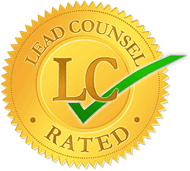Doctors and other medical professionals have a duty to use accepted standards of care when diagnosing and treating patients. Unfortunately, negligence is alarmingly common in hospitals, nursing homes, and other clinical settings.
If you or someone you love was harmed due to medical malpractice—whether it was a misdiagnosis, late diagnosis, prescription mistake, or another error—you may be entitled to compensation for all resulting damages. There are certain steps you should take and mistakes you must avoid to give your claim the best possible chance of success.
Below, we’ve outlined a few “dos and don’ts” to keep in mind:
- Don’t Provide a Recorded Statement to the Healthcare Facility
Healthcare facilities encourage patients to file written complaints so they can address issues internally. The idea here is to resolve grievances without incurring the costs of defending against a medical malpractice claim. But if you’ve suffered a serious complication or wrongful death in the family, you might accrue substantial damages, and you may not be offered a fair settlement. If you eventually decide to file a lawsuit, any statements you’ve provided to the opposing party might be used against you.
- Do Start Tracking Damages
As soon as you suspect medical malpractice has occurred, start documenting all resulting damages by:
- Photographing the progression of any visible wounds;
- Obtaining all medical records and diagnostic images;
- Starting a personal injury journal that details the complications you are experiencing; and
- Saving all relevant records, receipts, and invoices.
- Don’t Put off Calling a Lawyer
Medical malpractice claims are inherently complicated. It’s not uncommon for several weeks or even months to pass before a patient realizes that he or she was a victim of malpractice. Since time is of the essence in any personal injury case, it’s wise to call an attorney right away. The sooner your lawyer can investigate your claim, the higher the chance that time-sensitive evidence will still be available. Your attorney can also help you avoid critical errors early in the proceedings that might harm your case down the road.
- Do Prioritize Your Health
If you received substandard care from one provider, it’s natural to be skeptical of others, but it’s important that you seek adequate treatment for your condition. If you don’t take your healthcare seriously, the insurance company might argue that your own negligence has caused your condition to worsen and, therefore, you shouldn’t receive compensation for 100 percent of your damages. Also, getting a prompt diagnosis and immediate treatment might improve your prognosis.
Call 212-421-0300 to Discuss Your Case with a New York City Medical Malpractice Attorney
If you want to sue a negligent provider or facility after receiving substandard care, contact The Law Office of Richard M. Kenny. We will answer your questions, conduct a thorough investigation, and help you determine the most strategic way to pursue the compensation you deserve. Call 212-421-0300 or use our Online Contact Form to set up a free case evaluation with a medical malpractice lawyer in New York City.











